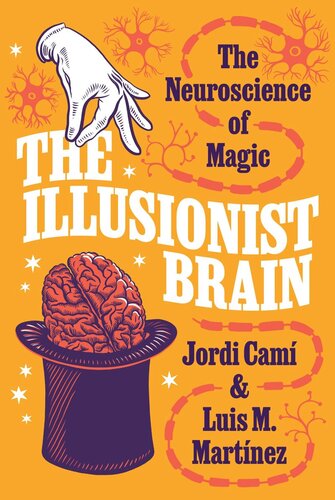

Most ebook files are in PDF format, so you can easily read them using various software such as Foxit Reader or directly on the Google Chrome browser.
Some ebook files are released by publishers in other formats such as .awz, .mobi, .epub, .fb2, etc. You may need to install specific software to read these formats on mobile/PC, such as Calibre.
Please read the tutorial at this link: https://ebookbell.com/faq
We offer FREE conversion to the popular formats you request; however, this may take some time. Therefore, right after payment, please email us, and we will try to provide the service as quickly as possible.
For some exceptional file formats or broken links (if any), please refrain from opening any disputes. Instead, email us first, and we will try to assist within a maximum of 6 hours.
EbookBell Team

0.0
0 reviewsHow magicians exploit the natural functioning of our brains to astonish and amaze us
How do magicians make us see the impossible? The Illusionist Brain takes you on an unforgettable journey through the inner workings of the human mind, revealing how magicians achieve their spectacular and seemingly impossible effects by interfering with your cognitive processes. Along the way, this lively and informative book provides a guided tour of modern neuroscience, using magic as a lens for understanding the unconscious and automatic functioning of our brains.
We construct reality from the information stored in our memories and received through our senses, and our brains are remarkably adept at tricking us into believing that our experience is continuous. In fact, our minds create our perception of reality by elaborating meanings and continuities from incomplete information, and while this strategy carries clear benefits for survival, it comes with blind spots that magicians know how to exploit. Jordi Camí and Luis Martínez explore the many different ways illusionists manipulate our attention—making us look but not see—and take advantage of our individual predispositions and fragile memories.
The Illusionist Brain draws on the latest findings in neuroscience to explain how magic deceives us, surprises us, and amazes us, and demonstrates how illusionists skillfully “hack” our brains to alter how we perceive things and influence what we imagine.